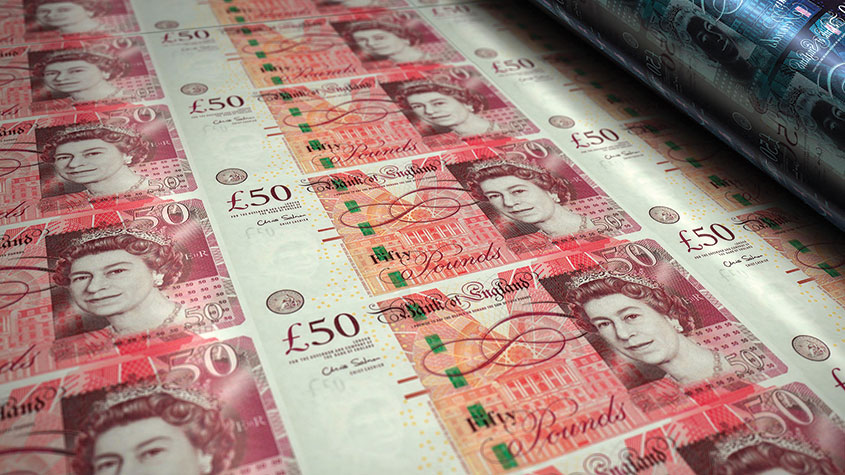Get the latest financial news, insights and expert analysis from our award-winning MoneyWeek team, to help you understand what really matters when it comes to your finances.
You are now subscribed
Your newsletter sign-up was successful
Want to add more newsletters?

Twice daily
MoneyWeek
Get the latest financial news, insights and expert analysis from our award-winning MoneyWeek team, to help you understand what really matters when it comes to your finances.

Four times a week
Look After My Bills
Sign up to our free money-saving newsletter, filled with the latest news and expert advice to help you find the best tips and deals for managing your bills. Start saving today!
Asset allocation is at least as important as individual share selection. So where should you be putting your money? Here's our monthly take on the major asset classes.

The start of a shake-out
Last month's high-profile meltdown in a US fund that specialised in junk bonds has focused investors' attention on risks in this part of the bond market. In recent years, income seekers have flocked to bonds issued by companies with lower credit ratings in pursuit of higher yields. But as interest rates begin rising and the credit cycle turns, higher defaults are likely to hand heavy losses to unwary buyers.
MoneyWeek
Subscribe to MoneyWeek today and get your first six magazine issues absolutely FREE

Sign up to Money Morning
Don't miss the latest investment and personal finances news, market analysis, plus money-saving tips with our free twice-daily newsletter
Don't miss the latest investment and personal finances news, market analysis, plus money-saving tips with our free twice-daily newsletter
The yield on the Bank of America Merrill Lynch US High Yield index has risen from 6.3% in April to 9% at the end of December as investors head for the exits (bond yields move inversely to prices). We think this is just the start of a major shake-out. Stick to the safest government debt if you want to hold bonds.

The Fed moves, finally
The US Federal Reserve raised interest rates in December, for the first time in a decade. The Bank of England is likely to take longer to act: markets are not pricing in a hike until the end of 2016 at the earliest. However, interest rates vary widely between banks, from virtually nothing to 6% on some "regular saver" accounts, so shop around for a good rate.

Still heading up
UK commercial property had another good year in 2015, according to the IPD All Property index. The asset class delivered a return of 12.5% in the first 11 months of the year, with 7% coming from capital growth and 5.5% from rental income. Commercial property values are potentially vulnerable to higher interest rates or an economic slowdown, butthe asset class can be a useful addition to a portfolio, since rents would be expected to rise with inflation over the long term.

A mixed year
Japanese and European stocks posted respectable returns last year. The MSCI Japan index was up by 8% in local currency terms, while the MSCI Europe excluding UK was up by 6%. These remain our favoured major markets: both are reasonably valued and their central banks are in easing mode, which should help to support stocks. US stocks are expensive, while the FTSE 100 is skewed by its exposure to energy and natural resources stocks (the FTSE 250 index of mid-caps offers better and more balanced exposure to the UK economy).
Emerging markets, another MoneyWeek favourite, had a dire year. The MSCI Emerging Markets index was down by 12% in sterling terms. Russia was the only major market to post a gain (up 6% in sterling terms), but it's still down 30% since peaking in April. Nonetheless, we continue to recommend that long-term investors hold emerging-market stocks: they are one of the cheapest asset classes and there is immense potential for long-term consumer demand growth in many of these economies.

Low expectations
Gold does best during times of high inflation or crisis. Neither are prevalent right now. So the yellow metal has continued performing poorly in recent weeks: it ended December at $1,060 per oz, down 10% for the year. We recommend allocating a small part of your portfolio (5%-10%) to gold as crisis insurance and because we expect inflation to return in the long term. But otherwise we have low expectations for gold prices in the near term.

Silver could beat gold in 2016
Silver is a metal with a dual role. Like gold, it was historically a monetary metal, as well as being used in jewellery. But it also has a number of industrial uses. So it tends to be more volatile than gold, both upwards and downwards. This was true in 2015: it finished at just under $14 per oz, down 12% for the year. However, if industrial demand remains reasonably robust, silver could outperform gold in 2016, since production cuts are squeezing supplies.

Rising supply meets weak demand
The supply glut in base metals saw prices continue to slide in 2015: the LMEX which tracks the price of copper, aluminium, lead, tin, zinc and nickel on the London Metal Exchange dropped by more than 25%. Lead was the least-bad performer, down just 2%, helped by tight stocks. Meanwhile, iron-ore prices fell by almost 40%, pressured by falling demand from Chinese steelmakers. We think metals prices could be approaching a bottom, but it's too early to turn bullish.
Get the latest financial news, insights and expert analysis from our award-winning MoneyWeek team, to help you understand what really matters when it comes to your finances.
MoneyWeek is written by a team of experienced and award-winning journalists, plus expert columnists. As well as daily digital news and features, MoneyWeek also publishes a weekly magazine, covering investing and personal finance. From share tips, pensions, gold to practical investment tips - we provide a round-up to help you make money and keep it.
-
 Can mining stocks deliver golden gains?
Can mining stocks deliver golden gains?With gold and silver prices having outperformed the stock markets last year, mining stocks can be an effective, if volatile, means of gaining exposure
-
 8 ways the ‘sandwich generation’ can protect wealth
8 ways the ‘sandwich generation’ can protect wealthPeople squeezed between caring for ageing parents and adult children or younger grandchildren – known as the ‘sandwich generation’ – are at risk of neglecting their own financial planning. Here’s how to protect yourself and your loved ones’ wealth.
-
 Profit from MSCI – the backbone of finance
Profit from MSCI – the backbone of financeAs an index provider, MSCI is a key part of the global financial system. Its shares look cheap
-
 Why investors can no longer trust traditional statistical indicators
Why investors can no longer trust traditional statistical indicatorsOpinion The statistical indicators and data investors have relied on for decades are no longer fit for purpose. It's time to move on, says Helen Thomas
-
 Is it different this time for Japanese stocks?
Is it different this time for Japanese stocks?Analysis Nikkei 225 Index has jumped 19.8% this year, and there are signs the rally could continue.
-
 As China reopens, why pick an income strategy?
As China reopens, why pick an income strategy?Advertisement Feature Yoojeong Oh, Investment Manager, abrdn Asian Income Fund Limited
-
 A new dawn for Asian markets?
A new dawn for Asian markets?Advertisement Feature James Thom, Investment Manager, abrdn New Dawn Investment Trust plc
-
 What next for stocks as bonds crash?
What next for stocks as bonds crash?Analysis Despite the slump in prices, UK government bonds remain too expensive. Stocks are much better value, says Max King.
-
 What higher interest rates could mean for stocks
What higher interest rates could mean for stocksAnalysis With interest rates rising rapidly around the world, the outlook for equities is becoming more and more uncertain – but what will higher interest rates mean for your stocks?
-
 The end of cheap money hits the markets
The end of cheap money hits the marketsNews Markets have swooned as central banks raise interest rates, leaving the era of cheap money behind.

